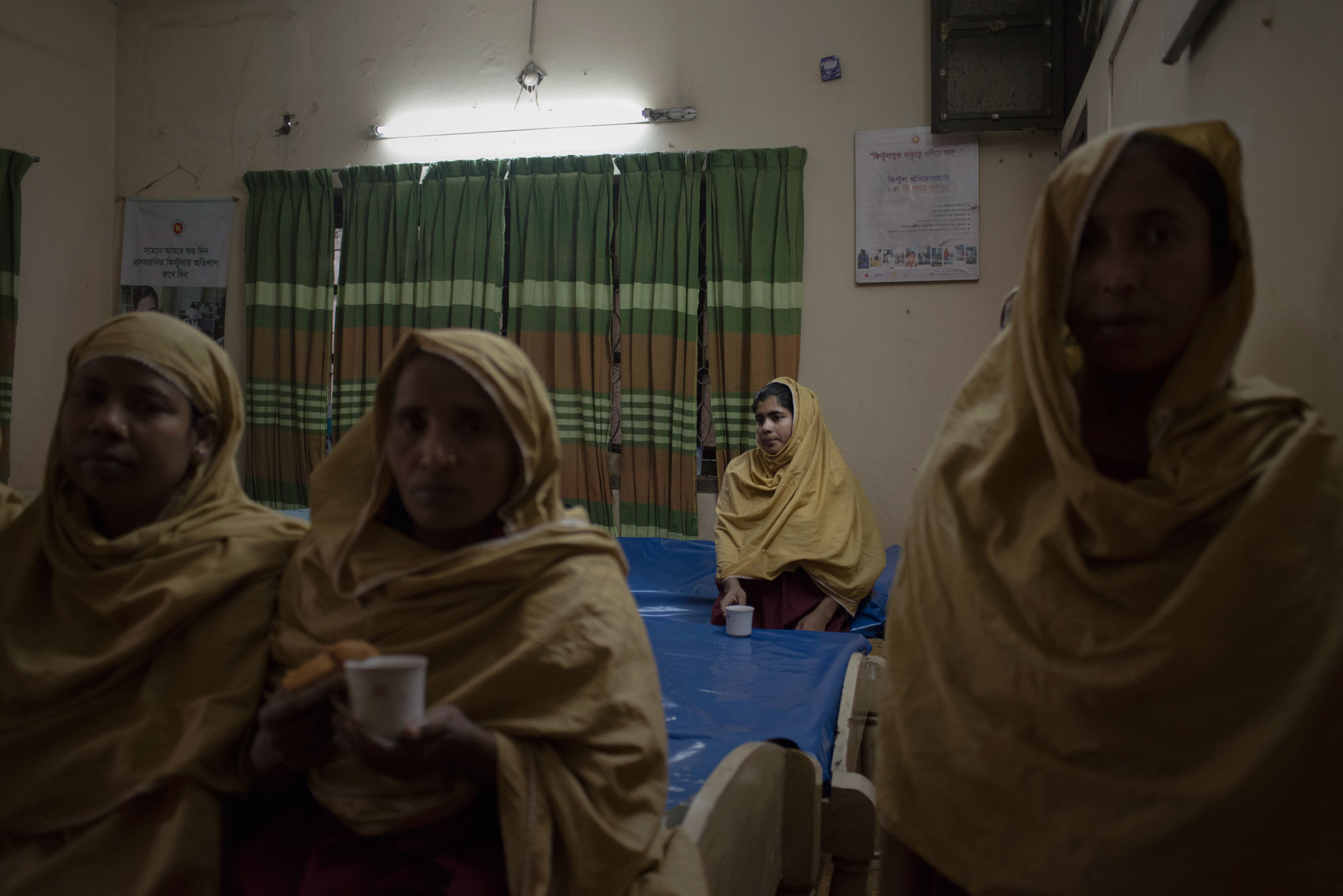Fistula
Fistula
Girls and young women whose bodies are not physically mature are particularly vulnerable to complications during pregnancy and child birth, including prolonged, obstructed labour that can lead to obstetric fistula. It is estimated that more than two million women and girls are living with obstetric fistula.
Obstetric fistula is a hole between the vagina and bladder and/or rectum which causes urine and/or stool to leak from the vagina uncontrollably. Fistula is caused by prolonged, obstructed labour without access to timely and skilled medical care. The pressure of the unborn baby can hinder blood flow to the tissue that make up the walls between vagina, bladder and rectum. With blood flow cut off, the tissue withers and dies, causing the hole (or fistula) to appear once the – often stillborn – child is born.
Fistula causes suffering girls to smell and they often do not have any means to manage the flow (e.g., with sanitary pads). In addition to the devastating physical, emotional, and economic consequences of fistula, living with a fistula is an extremely stigmatizing condition. Husbands often leave their wives, and girls with fistula are often made outcasts in the local community, sometimes being forced to drop out of school and confined to a life of isolation and shame.
Studies in Ethiopia, Malawi, Niger and Nigeria show that about one in three women living with obstetric fistula report developing it as an adolescent. Fistula is entirely preventable with access to skilled care at birth and timely referral to emergency obstetric care such as caesarean sections, when needed. Most fistulas can be repaired through surgery, yet this requires access to specialized surgeons and is often associated with high costs. Access to the procedure is very limited, especially since women and girls living with fistula are typically among the poorest of the poor. It is therefore estimated that only a tiny fraction of those in need of the surgery ever receive it.
This is the story of Anita
Anita is 15 years old
Anita lives with her husband and her in-laws in a rural village in Bangladesh. She was forced to marry when she was 13 years old and got pregnant at 14. Her delivery was very difficult and when she finally got to a hospital, her son was dead and she had been badly injured.
I feel so sad. My baby died in labour and I'm still in such pain; I can't walk properly. I was in the hospital for 12 days afterwards because of my injuries. After my delivery, I had no control when I urinated. Lying down in bed, I don’t leak. But as soon as I get up and take a step, I urinate. I wet my clothes and everything. I worry if I’ll ever get well.
I'm praying that God takes care of me. I had a son, who died. God took him away. Please give me a chance to be a mother again. Without children, a person’s world is so dark.
Before I got married, I lived with my mother, father, seven sisters and a little brother. My family is poor so I went to school for only two years. One day my aunt came to visit and asked my father about marrying me off. I wasn’t happy. I didn't even know my husband.
After five months of marriage, I got pregnant. I was happy to be expecting a child and my husband was happy too. I didn't know about the risks of being pregnant being as young as I was. I hardly talked to anyone; I just stayed at home.
My delivery was very difficult. It was ten o'clock at night when my water broke. The village Daayi (a traditional midwife) came but she couldn’t get my baby to come out. Then they took me to the local health facility but they couldn’t help me, either. So they transferred me to the town hospital.
After nearly 28 hours of labour, I was in so much pain. Even the baby’s hair was pulled out as they forced the delivery, but still it was impossible. Finally they delivered my baby but he’d already died.
I was sent home with a catheter, so I had to come back and change it every ten days. But I wasn’t getting any better. So one day I broke down and cried. That’s when my neighbour asked what’s wrong with me. I shared my story with her and she told me that I could get treated for my condition. That’s when my husband brought me here, to the Fistula Rehabilitation Center.
Now, I'm waiting for an operation. After my surgery, I want to learn how to tailor so I can make some money. But I also need to get pregnant. My husband is still with me but he's not very supportive about my injuries. He blames me and asks me why I have this condition when other women don’t. This is why I need to recover. If I don’t have another child, my husband will leave me. Who will take care of me then?
I pray that I will recover completely.


“Now, I'm waiting for an operation. After the surgery, I want to learn tailoring to earn some money. And I need to get pregnant, otherwise I'm afraid my husband will leave me.”